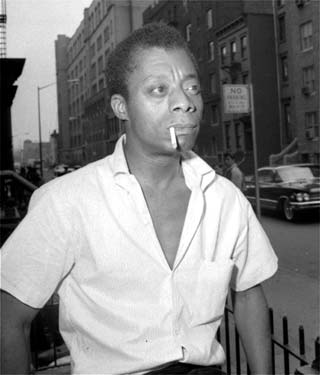
NPR’s Morning Edition featured James Baldwin today as part of their continuing “American Lives” series. Listen and read here. Their lede–
The writer James Baldwin once made a scathing comment about his fellow Americans: “It is astonishing that in a country so devoted to the individual, so many people should be afraid to speak.”
As an openly gay, African-American writer living through the battle for civil rights, Baldwin had reason to be afraid — and yet, he wasn’t. A television interviewer once asked Baldwin to describe the challenges he faced starting his career as “a black, impoverished homosexual,” to which Baldwin laughed and replied: “I thought I’d hit the jackpot.”
In the piece, NPR talks with Randall Kenan, editor of a new collection of Baldwin’s essays, speeches, and articles called The Cross of Redemption. The link above includes a great excerpt of one of Baldwin’s essays, “Why I Stopped Hating Shakespeare.” A taste–
The greatest poet in the English language found his poetry where poetry is found: in the lives of the people. He could have done this only through love — by knowing, which is not the same thing as understanding, that whatever was happening to anyone was happening to him. It is said that his time was easier than ours, but I doubt it — no time can be easy if one is living through it. I think it is simply that he walked his streets and saw them, and tried not to lie about what he saw: his public streets and his private streets, which are always so mysteriously and inexorably connected; but he trusted that connection. And, though I, and many of us, have bitterly bewailed (and will again) the lot of an American writer — to be part of a people who have ears to hear and hear not, who have eyes to see and see not — I am sure that Shakespeare did the same. Only, he saw, as I think we must, that the people who produce the poet are not responsible to him: he is responsible to them.

